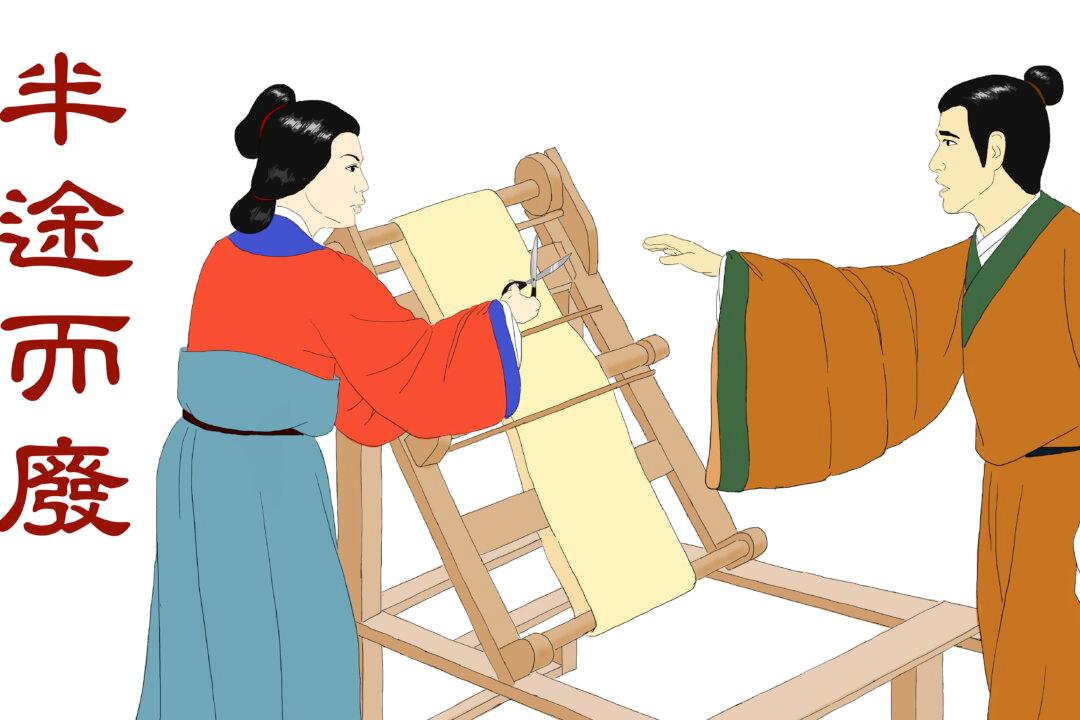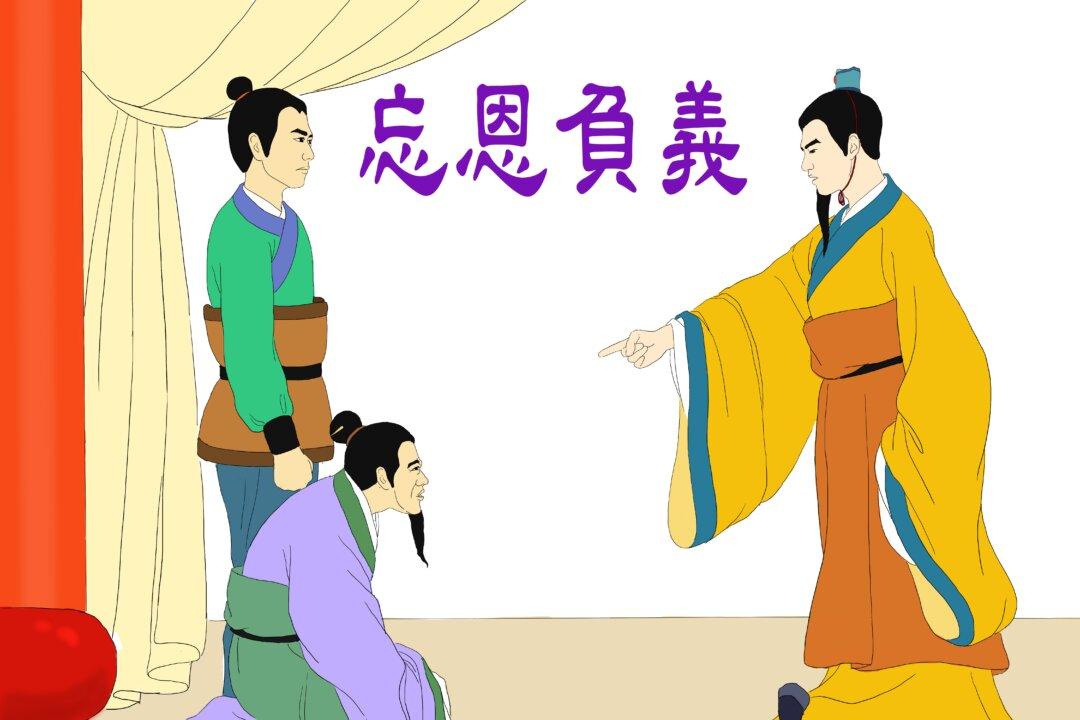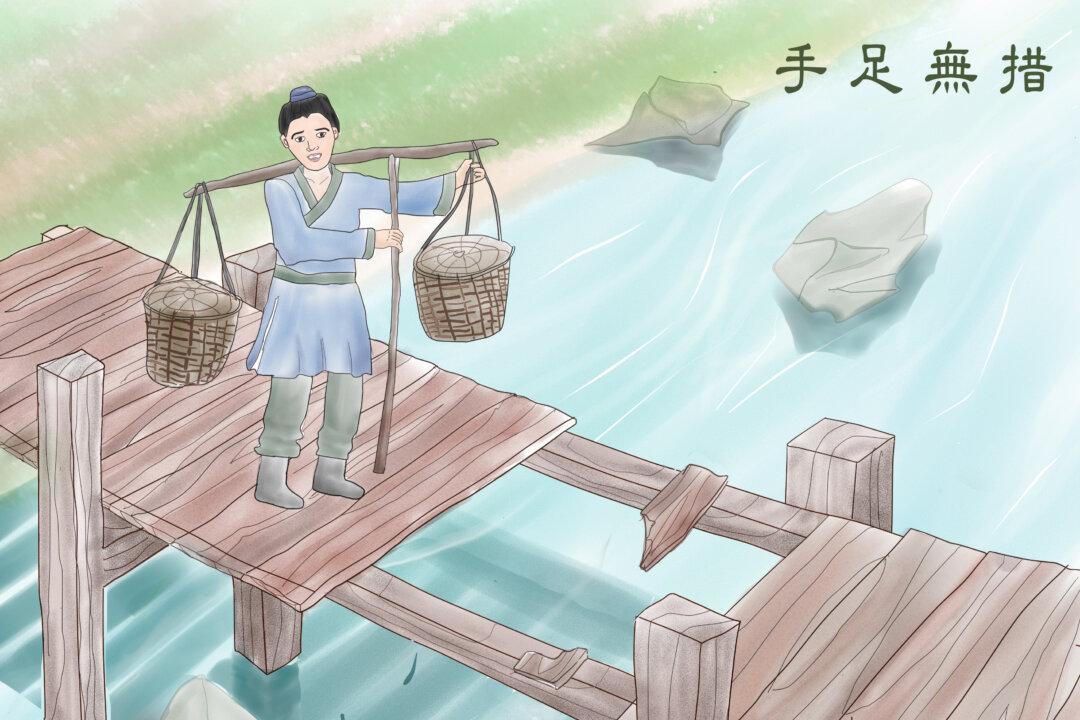The idiom 半途而廢 (bàn tú ér fèi), “give up halfway,” or leave something unfinished, originates from “The Doctrine of the Mean (1),” one of the four Confucian canonical scriptures.
As the story goes, during the Warring States period (475–221 B.C.), there was a man named Yue Yangzi who lived with his wife in the state of Yue.
One day, Yue Yangzi saw a piece of gold in the road and picked it up. He took it home and showed it to his wife.
His wife looked at the gold and said: “I hear that a man of morality will not drink a thief’s water and a man of integrity refuses to accept alms. What do you think about picking up another’s loss and possessing it for one’s own?”
Hearing this, Yue felt ashamed and took it back to where he had found it. Yue then decided to search for scholars and enrich his knowledge. With support from his wife, Yue set off.
A year later, Yue suddenly returned home. His wife, who was weaving silk cloth, knelt down to greet him and asked, in surprise: “You’ve only spent one year in study. Why are you back?”
Yue answered: “I came back home to see you because I missed you very much.”
Without saying anything, his wife picked up a pair of scissors and went to the loom where she had been working.
Pointing at the half-finished brocade, she said softly: “This brocade is woven from the finest silk. I wove one strand after another to produce it. Now if I cut it, all my previous work will be wasted. It’s the same with your studies. You can acquire knowledge only through diligence. Now, you’ve stopped halfway. Isn’t it the same as cutting the cloth on the loom?”
Yue was deeply moved by what she said. He left home again; this time determined that he would not give up halfway through his studies. Several years later, Yue became a very learned man.
This idiom is used to refer to an action that stops in the middle of the process. It warns that all one’s efforts will be wasted if one cannot see things through to the end.
Note:
Believed to be composed around 450 B.C. by Confucius’s grandson, “The Doctrine of the Mean (中庸) was first a chapter in the Confucius philosophical text “The Classic of Rites.” Later, it was regarded as one of the four Confucian canonical scriptures. ”The Doctrine of the Mean” has also been translated as “The Doctrine of Equilibrium,” “Middle Way,” and “The Doctrine of Harmony.”




